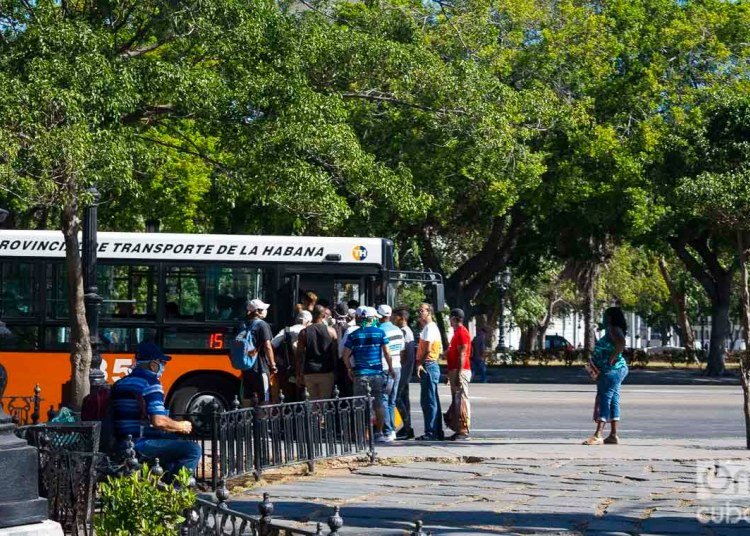As a measure aimed at containing the spread of the coronavirus, public transportation will be suspended throughout Cuba as of this Saturday, Transportation Minister Eduardo Rodríguez Dávila said in this Thursday’s Mesa Redonda television program.
The move underscores the need to avoid overcrowding and large crowds of people that violate social distance, an essential step for success. The minister said that despite constant recommendations to avoid them, in recent days an increase in movement in urban and inter-municipal transport had been verified. “Far from decreasing, it has grown, and this is a significant risk at this stage of contagion,” he said.
As of April 11, it was then decided to stop the urban public transportation service. This includes buses, vans, cars, pedicabs, railroads, and other variants of passenger transportation, both state and private, as well as inter-municipal and rural services.
As of this Friday there will be, he said, a “noticeable reduction in all services” of public transportation. Only the one intended for workers in prioritized, productive, service and other duly authorized activities will be maintained.
They will limit their capacity to 50%, so that a reasonable distance between passengers is guaranteed. For each double seat, there can only be one person.
Cuba suspends interprovincial passenger transportation and evaluates measures for cities
Likewise, he reiterated that to travel by any means of transportation that is still active, the use of the facemask and the use of sodium hypochlorite in the hands of passengers when riding in the vehicle is mandatory.
Private passenger carriers will have their licenses suspended for the duration of this measure. They will not have to pay taxes. The license will be reactivated when that measure ceases to be in force.
For her part, Cuban Minister of Domestic Trade Betsy Díaz reported new steps to contribute to the fight against the coronavirus.
She said that they have been added to those already taken in order to guarantee the distribution of basic products, while facilitating their acquisition to promote social isolation.
Among these measures is the reconditioning of store chains to deconcentrate the distribution and sale of food, toiletries and hygiene items, as well as the prohibition of selling others that are considered non-essential.
The codes to sell those vital products will also be incorporated into all the cash registers, a demand from the population, she said, to help speed up purchases and comply with the isolation measures.
Product units will be prepared to streamline their distribution and mobile sales will be organized with the support of law enforcement, the Ministry of Transportation and other agencies.
These measures are in addition to those implemented to regulate the hours of gastronomy, state and private units, which can only sell products to take out precisely in order to avoid crowds.










